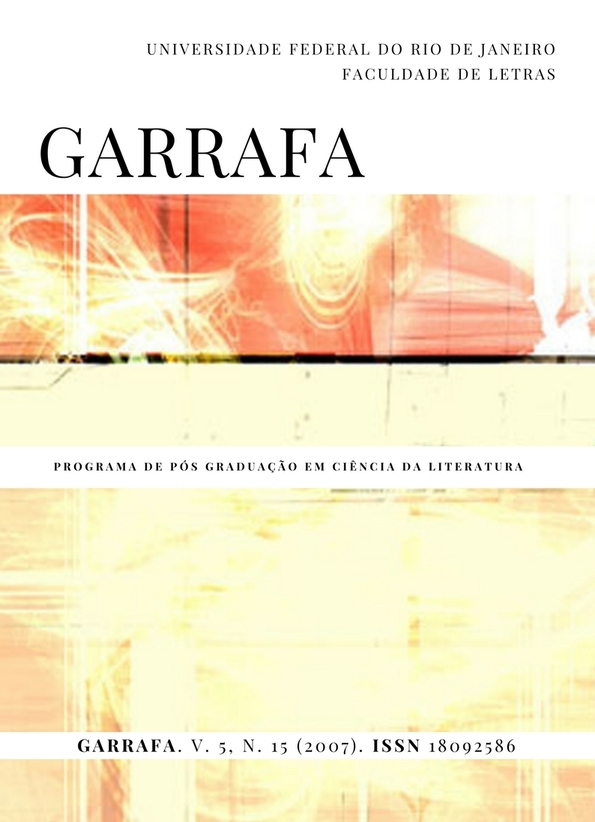The Song of Absence: Blanchot and Kristeva on Loss, Melancholy, and Imagination
Resumo
Orpheus sings the loss of Eurydice. He sings her absence, and the voice of that absence stirs the shades of Hell, stills the roar of animals, and moves the very rocks to pity. The song of Orpheus is the dream of a poetic diction, of a singing, whose intensity lifts it beyond the crowded complacency of the everyday to uncover a cadence that disrupts the monotonous churning of the world. A song that will force itself even upon the obdurate inaccessibility of stone: such is the dream that has carried the voice of Orpheus beyond the banks of the river Hebrus to echo across the shores of our own turgid and difficult times. That the force of this singing is born of the articulation of an absence -- out of pain, out of loss -- must render this image of special significance in any speculation on the relations of absence to imagination, of sorrow to song, of melancholy to the libidinal economies of artistic expression. It is with a view to exploring some of these connections that this paper is written. It will move from a discussion of Blanchot's dense and cryptic reflection on the myth of Orpheus from his 1955 volume ‘L'Espace Litteraire', to the exploration of a parallel theoretical moment in the idea of ‘melancholic imagination' developed by Kristeva in ‘Soleil Noir' of 1977.
Referências
Virgil, trans. Dryden -- Georgics IV, 762-4
Chaucer, Boece , III, 12, 55-60
Blanchot, trans. Lydia Davis, The Gaze of Orpheus (New York: Station Hill, 1981) p.99-104
Chaucer, Boece , III, 12, 63-68
Rilke: Orpheus. Eurydike. Hermes, trans. S. Mitchell
Kristeva, Black Sun . trans. Roudiez . (New York: Columbia University Press, 1989) p.6
See, for example, Kristeva, Powers of Horror: an Essay on Abjection (New York: Columbia University Press, 1982), p.13-15
Black Sun , op cit . p.13
Quoted in Kristeva, op cit . p.263 n.10
Kristeva, Black Sun , op cit. p.14
Otto Deutsch, Schubert: Die Erinnerungen Seiner Freunde Leipzig : Breitkopf und Hartel, 1957
Czeslaw Milosz, Orpheus and Eurydice , from Second Space ( New York : Ecco, 2004) p.99-102
Downloads
Publicado
Edição
Seção
Licença
Autores que publicam nesta revista concordam com os seguintes termos:
- Autores mantém os direitos autorais e concedem à revista o direito de primeira publicação, com o trabalho simultaneamente licenciado sob a Licença Creative Commons Attribution que permite o compartilhamento do trabalho com reconhecimento da autoria e publicação inicial nesta revista.
- Autores têm autorização para assumir contratos adicionais separadamente, para distribuição não-exclusiva da versão do trabalho publicada nesta revista (ex.: publicar em repositório institucional ou como capítulo de livro), com reconhecimento de autoria e publicação inicial nesta revista.
- Autores têm permissão e são estimulados a publicar e distribuir seu trabalho online (ex.: em repositórios institucionais ou na sua página pessoal) a qualquer ponto antes ou durante o processo editorial, já que isso pode gerar alterações produtivas, bem como aumentar o impacto e a citação do trabalho publicado (Veja O Efeito do Acesso Livre).

